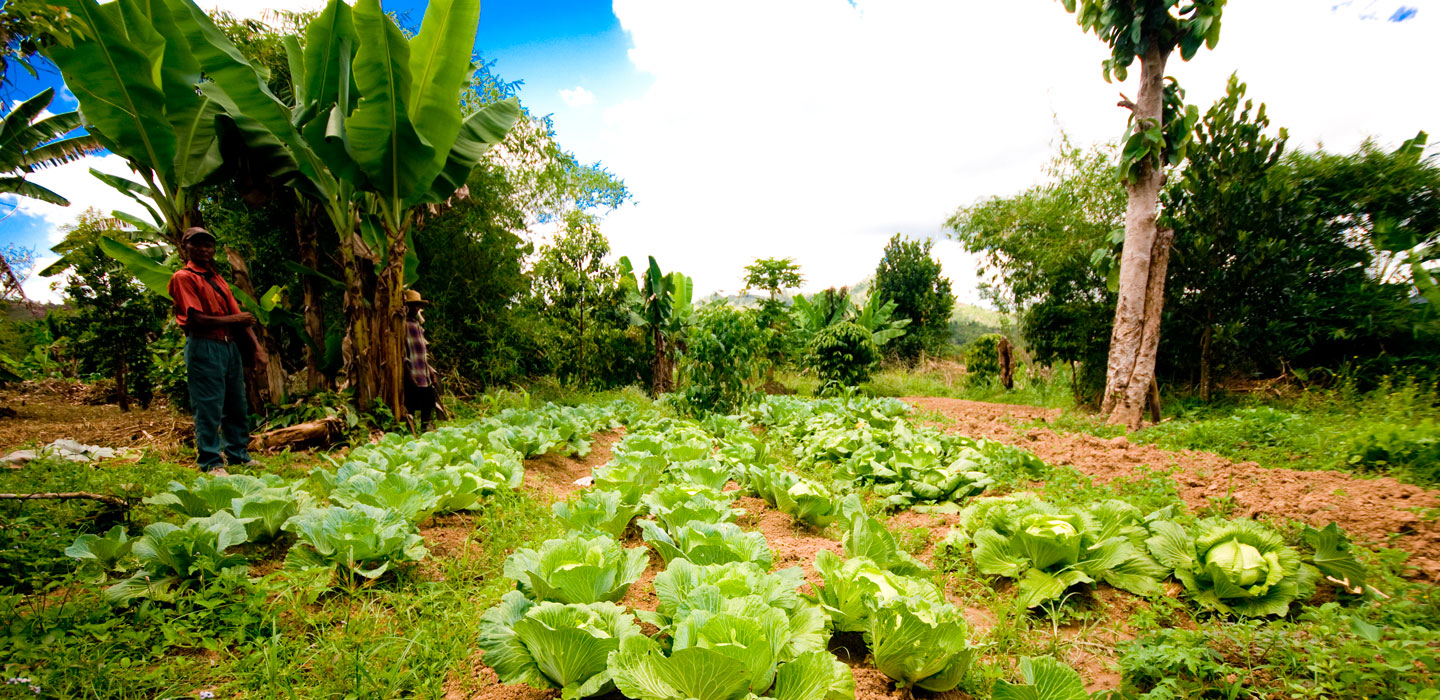Il faut repenser d'urgence l'agriculture, ou d’autres maladies sauteront les espèces
IFAD Asset Request Portlet
Agrégateur de contenus
Il faut repenser d'urgence l'agriculture, ou d’autres maladies sauteront les espèces
Temps de lecture estimé: 4 minutes
Dans un monde aujourd’hui aux prises avec la pandémie, d'autres menaces, notamment l’urgence climatique, n'ont pas disparu pour autant. Les données scientifiques montrent clairement que, sans une action urgente à l’échelle mondiale, une crise climatique et environnementale encore plus grave nous attend...
Bientôt disponible en français. Restez connectés!
En savoir plus sur l'action du FIDA face aux changements climatiques
As the world grapples with the current pandemic, other threats, not least our climate emergency, have not gone away. In 2020, the economic disruption from Covid-19 cost the world’s economy more than 7 trillion dollars in lost output, with the IMF predicting that could rise to a staggering $28 trillion. But the science is clear that without urgent global action, the climate and broader environmental crisis could be worse.
Nowhere is this more true than in our global food system. We have tripled food production in the last 40 years, and that is extraordinary. But we know without any shadow of doubt that unless we change the way we produce food, we will not only lose those gains, we will pay a terrible price.
We have learnt that populations of key species have declined by more than two thirds since the 1970s, that two out of five plant species face extinction, and that we are destroying forests at a rate of 30 football pitches a minute - forests that not only regulate our water and climate systems they underpin the livelihoods of a billion people.
The principle cause of this devastation is agriculture.
Globally, more than half of the agricultural land we use is degraded and it is estimated that the diminishing yields will hit 500 million small farms hardest. To make matters worse, poor land use is now the second biggest source of emissions. Higher than average temperatures, more frequent and extreme weather events and desertification are hitting the very people who depend most on the earth’s natural resources to sustain livelihoods. In much of Africa, where food insecurity was highest before the pandemic and has risen further since, the losses are likely to be far higher.
Covid-19 has made it devastatingly clear that our health and the planet’s health are indivisible; that unless we halt biodiversity loss and repair our relationship with the natural world, more diseases will jump species. It is estimated that three out of every four new or emerging infectious diseases in people in the past 10 years are zoonotic.
So it’s crystal clear that to tackle climate change, help nature recover, and both prevent and alleviate poverty, as well as minimise the risk of future pandemics, we need a profound shift towards more sustainable land-use.
It is a huge task, but the greatest ally we have is nature herself. Nature based solutions could provide around a third of the most cost effective solution to climate change – as well as providing a multitude of other benefits – for biodiversity and people alike. For example, restoring forests, wetlands and mangroves not only absorbs carbon, it helps reduce the risks of flooding, erosion and landslides caused by extreme rainfall.
Through the UK’s International Climate Fund — and through the International Fund for Agricultural Development (IFAD) Adaptation for Smallholder Agriculture Programme — we are working to help get policy and investment behind more productive, profitable, and sustainable land-use around the world, and we are directly supporting smallholder farmers to make the shift.
But we need all governments to step up their efforts. Despite the vast potential of nature based solutions, just 3% of global climate finance is invested in nature. That must change. And we need governments to identify and deploy all the levers at their disposal to shift incentives from destruction towards sustainability. For example the 700 billion dollars of subsidies for – often harmful – land use that the top 50 food producing countries hand out each year.
The Prime Minister recently announced that the UK will commit at least £3 billion to climate change solutions that protect and restore nature and biodiversity over five years. The funding will protect biodiversity-rich land and ocean, shift to sustainable food production and supply, and support the livelihoods of the world’s poorest.
At the virtual UN General Assembly at the end of last year, over 75 world leaders and 50 non-state actors signed up to a Leader’s Pledge for Nature. It is the most ambitious such declaration, a commitment to put nature and biodiversity on a road to recovery by 2030. With the three Rio Conferences on climate change, biodiversity and desertification all happening this year, now is the time to make real that commitment.
This article was originally published in Red Box on The Times website by Sabrina Dhowre Elba, IFAD Goodwill Ambassador and Lord Goldsmith.
Date de publication: 25 janvier 2021